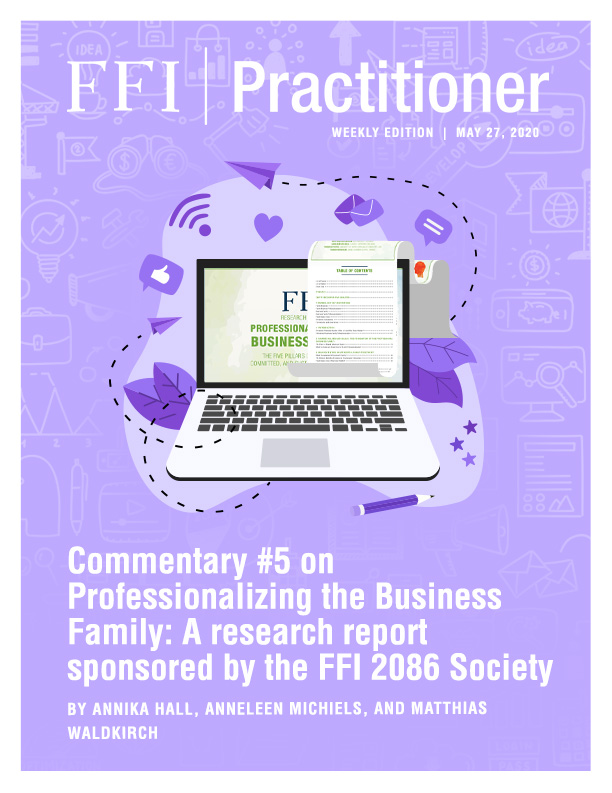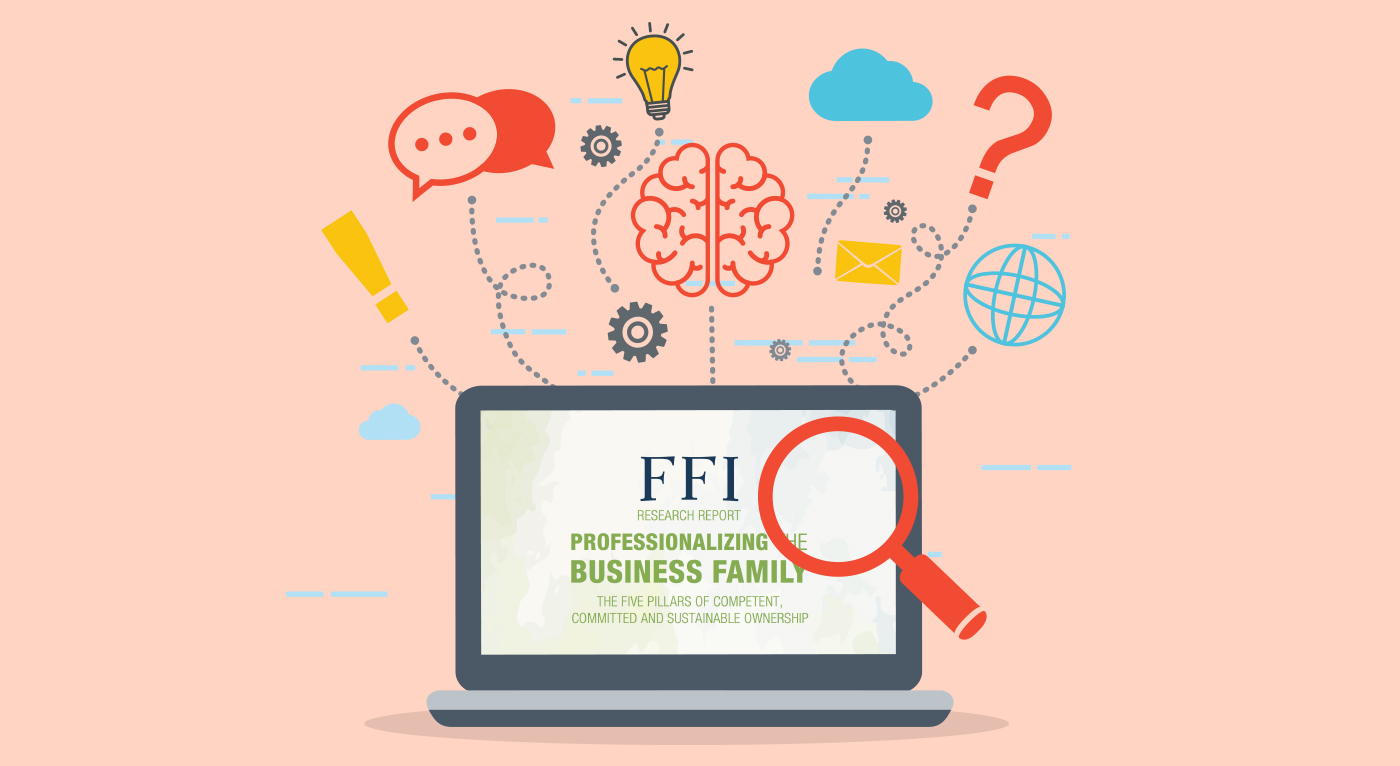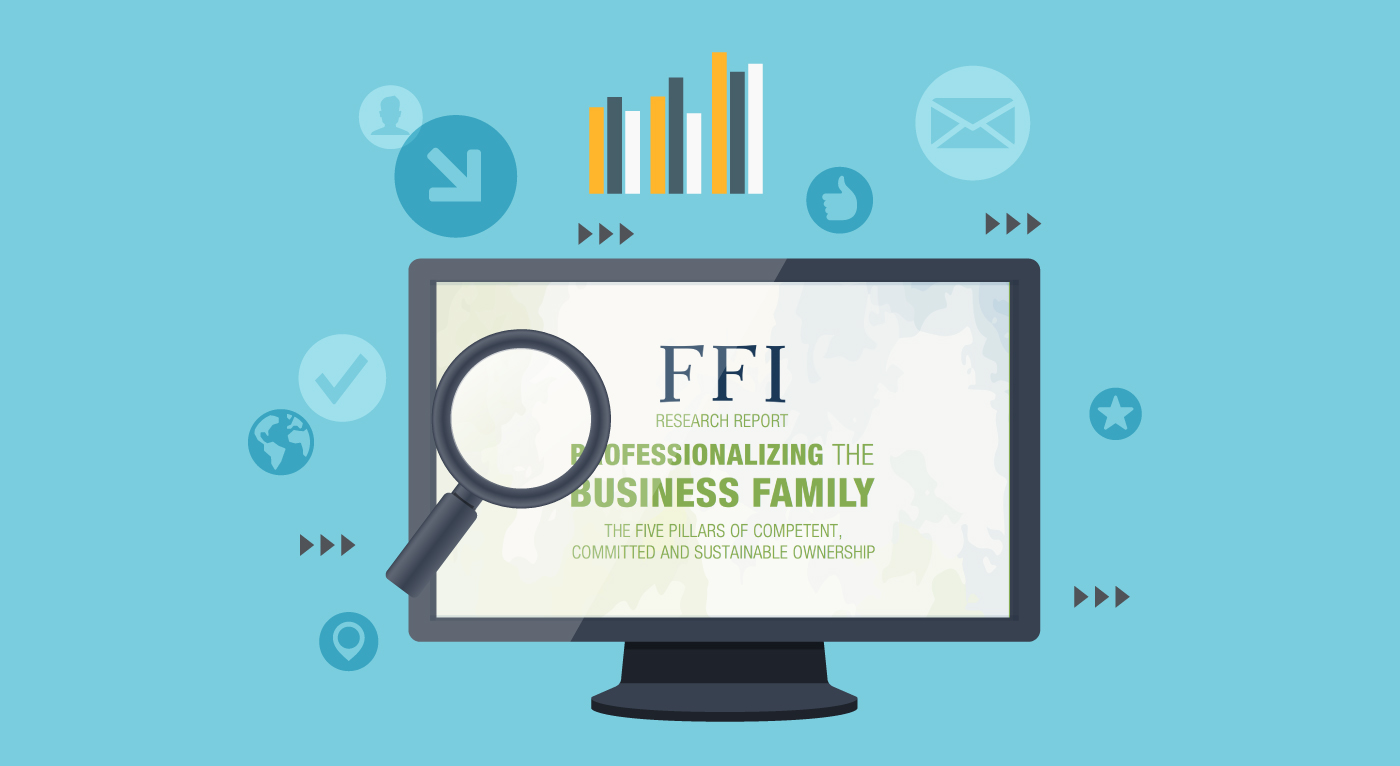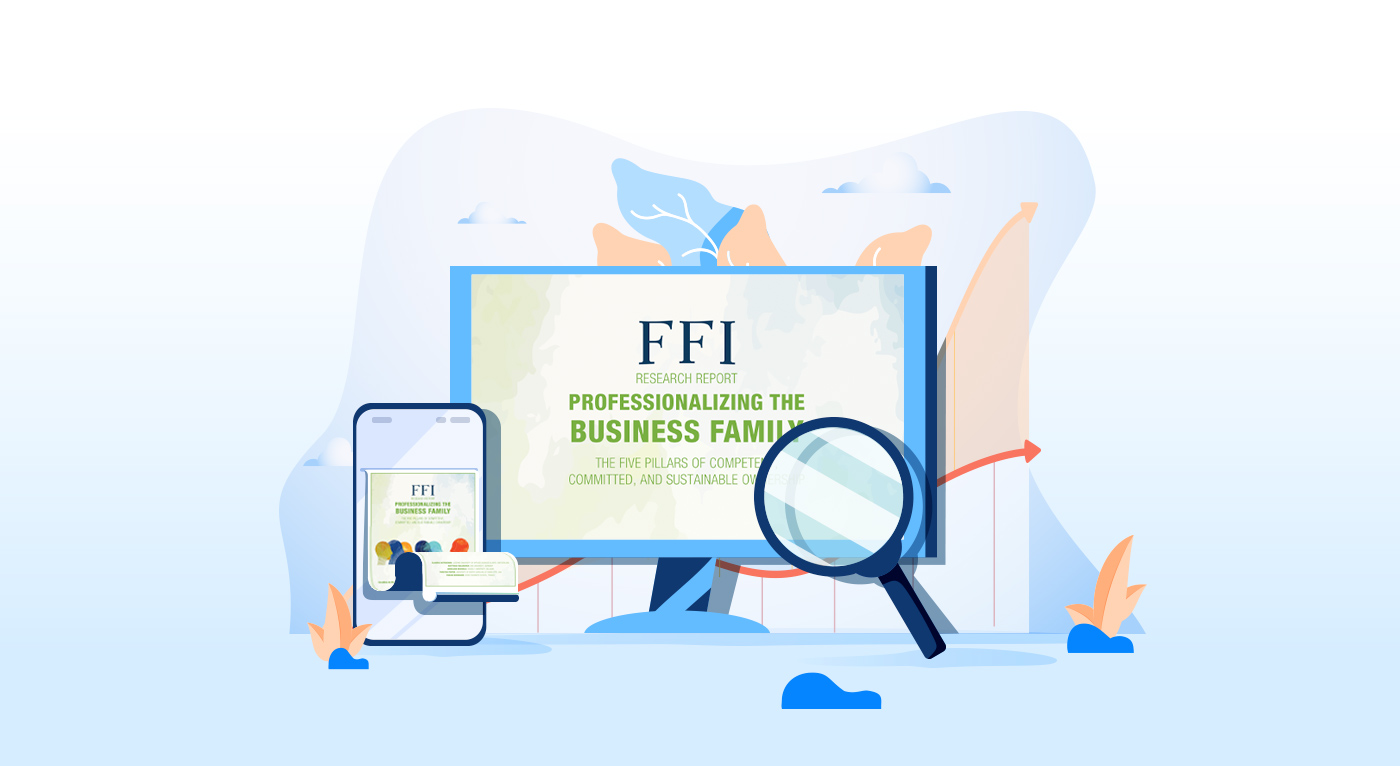
Having returned before Christmas to the family’s home near Gothenburg from Berlin, she just found out that her father had started succession talks with her siblings without her. “You really don’t want me in the business, do you? You just don’t care what I want anyway.” Taken aback by her accusation, her father, Peter, snaps at her: “How is this such a big thing suddenly? We haven’t seen you here in half a year, so how should I know that you suddenly care about my business?” As angry accusations fly across the room, the calm Christmas atmosphere dissipates.
Situations of failed communication such as the case of the Davidsson family are, unfortunately, a common occurrence in family firms. In a worldwide survey conducted by FFI in August 2019 (see Binz-Astrachan et al., 2020), family business advisors indicated a “culture that prevents open communication” as the main source of conflict in family businesses. With regards to the ownership competences, they indicated “empathy and the ability to properly interpret family members’ behavior” as the number one competence of family business owners, together with a “culture of open communication and a willingness and ability to deal with conflict.”
Thus, apart from developing general business acumen and being able to recognize and deal with challenges related to societal, political, and regulatory developments, competent owners are especially expected to have these family- and self-competences as well. Therefore, if we want to support family businesses in remaining family-owned, it is important to create—and keep—a strong group of competent owners that communicates openly and effectively.
How can advisors help family owners to develop these much-needed family and self-competences? In this commentary, we focus on the role that communication patterns can play in family businesses.
Moving from an ‘I’ to a ‘We’
Ownership succession often implies an increase in the number of owners, so that collectively the owners are responsible for decisions with impact not only on the business but also on relationships within the family and the family´s private wealth.
This can be a novel situation for everyone. The senior generation, which has been used to a high level of decision-making freedom, now needs to share power and take other opinions and preferences into account. The new owners now have to adapt to a completely new role, with new expectations of knowledge and behavior.
Family ownership tends to add to the complexity of collective decision-making. As family members, the owners have an understanding of each other from their family roles—parent, child, siblings, cousins, or the like. When ownership succession takes place, a long time might have passed since these family members were close. Those in the next generation have formed their own lives and identities, independently from their parents and siblings. But when they become co-owners, their interdependence suddenly increases. This might be challenging. It is not unlikely for prejudice, relationship tensions, and even conflicts to surface, as family members need to interact more frequently and on more intense levels. Differences in interests, opinions, and preferences, which were never spoken or have long been silenced, might come to the surface as joint decisions need to be made.
One of the most important collective ownership competences is, therefore, the ability of the owner group to constructively integrate these differences. This means not just mere tolerance or acceptance of these differences, but rather an effort to clarify and to integrate them. This is a competence that can be learned by paying attention to the communication process, i.e., by focusing on how they are being expressed in and received by the group.
Sidebar
A first step towards this constructive communication pattern is making space for all voices to be heard, irrespective of their message. It requires everyone to feel safe enough to speak their mind, knowing that whatever they say will be respectfully listened to. This might be especially challenging in the context of the family. Long-lasting family roles and dynamics can often make family communication difficult. Old interaction patterns might resurface and disrupt present conversations. Family members think they know what the other person will say, so they do not really bother to listen. Alternatively, they believe they know other family members’ reactions to their own thoughts and opinions, so they sometimes decide it is better to keep quiet.
Owning families in particular, therefore, need to consciously work on improving their communication patterns so as to give room for the differences that will always exist between their members. The key is to allow room for the individual family members to remain independent, with their own thoughts, ideas, and opinions, and yet to make decisions as a united, owning team. Collectively, the owners need to learn how to integrate, not suppress, their differences so as to take advantage of them.
Toward constructive communication
As Christmas morning arrives, the mood in the Davidssons’ home is still subdued from the conflict the previous day. Peter realizes that his angry response had significantly contributed to the conflict. As he walks towards Karin’s room for another conversation, he wonders how he can improve his communication this time.
In the following, we highlight several key steps in building a more constructive communication climate, illustrating how Peter approached the second conversation differently:

Hoping for a more harmonious conversation, Peter knocks on Karin’s door and enters the room. As he starts talking with Karin, he realizes that her anger from earlier has not waned. This time, however, he sits down and listens to her calmly.

“I see that you are disappointed with me and that you feel we have gone behind your back and have excluded you from this conversation. Is this true?” Peter asks his daughter after she again explains her frustration. “Disappointed for sure, but also hurt. Didn’t you realize that I care for the firm as well?” she retorts, surprised by the unexpected turn the conversation has taken.

“I wasn’t aware of your concern for the business, but now I understand, and I am sorry that you feel disappointed and hurt,” continues Peter. “Let me try to explain the reason we started our conversation this way.” Peter continues, explaining the struggles that the business had gone through in the past few weeks, and that he had just been too preoccupied. “But of course I should have called you, and I realize I should have asked earlier whether you are interested. Are you?”
With improved ability to listen, understand, and eventually integrate differences, more carefully considered decisions can be expected. But it is not only decision-making that benefits from this way of communicating. If handled constructively, differences and disagreements can eventually bring benefit to many other facets of the family business. Making sure all voices are heard also strengthens family relations. When all members know their voices are heard, respected, and taken into account, a space gets created where each individual feels included in the group without compromising his or her sense of self. This leads to a more trusting environment, in which everyone feels safe about being him- or herself within the group. And when all family members appreciate belonging to the group, family cohesion improves. For these reasons, fostering constructive communication competence might be one of the most important investments an owning family can make.
References
Binz Astrachan, C., Waldkirch, M., Michiels, A., Pieper, T., & Bernhard, F. (2020). Professionalizing the Business Family: The Five Pillars of Competent, Committed and Sustainable Ownership. FFI Research Report.
Available at: https://digital.ffi.org/pdf/ffi_professionalizing_the_business_family_v6.pdf
Hall, A. (2012). Family business dynamics: A role and identity based perspective. Cheltenham: Edward Elgar.
Hall, A. (2018). When the business continues in the family: Guide to a successful succession [available in Swedish only]. Malmö: Roos & Tegnér.



About the Contributors








